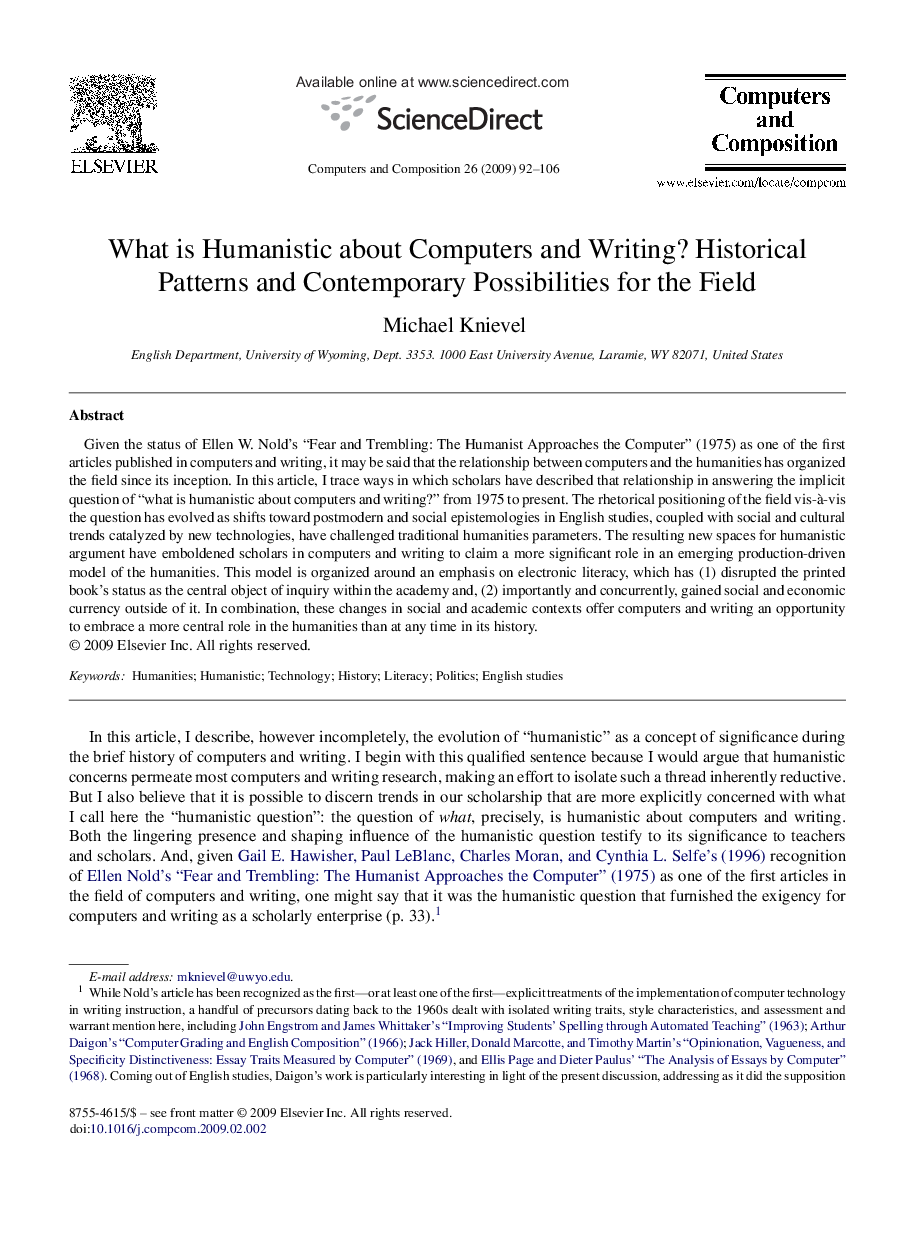| Article ID | Journal | Published Year | Pages | File Type |
|---|---|---|---|---|
| 347987 | Computers and Composition | 2009 | 15 Pages |
Given the status of Ellen W. Nold's “Fear and Trembling: The Humanist Approaches the Computer” (1975) as one of the first articles published in computers and writing, it may be said that the relationship between computers and the humanities has organized the field since its inception. In this article, I trace ways in which scholars have described that relationship in answering the implicit question of “what is humanistic about computers and writing?” from 1975 to present. The rhetorical positioning of the field vis-à-vis the question has evolved as shifts toward postmodern and social epistemologies in English studies, coupled with social and cultural trends catalyzed by new technologies, have challenged traditional humanities parameters. The resulting new spaces for humanistic argument have emboldened scholars in computers and writing to claim a more significant role in an emerging production-driven model of the humanities. This model is organized around an emphasis on electronic literacy, which has (1) disrupted the printed book's status as the central object of inquiry within the academy and, (2) importantly and concurrently, gained social and economic currency outside of it. In combination, these changes in social and academic contexts offer computers and writing an opportunity to embrace a more central role in the humanities than at any time in its history.
